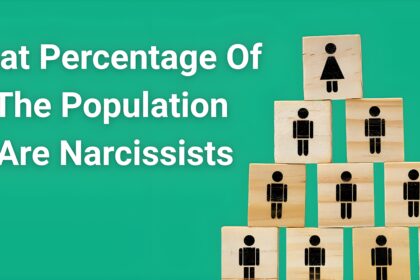Are Narcissist Sociopaths? If you're desperately searching for this answer while questioning your own sanity, you're about to discover a truth so devastating it will completely shatter everything you believed about human nature, relationships, and your own safety. After helping over 10,000 survivors through my top-ranking Substack newsletter escape narcissistic abuse, I can tell you this answer will either set you free or break your heart all over again.
The terrifying confusion you're experiencing right now isn't coincidence—it's the result of living with someone whose behavior is so extreme, so manipulative, and so devoid of human conscience that you're questioning whether you're dealing with a narcissist, a sociopath, or something even more dangerous.
As Fahim Chughtai, a Certified Narcissistic Abuse Specialist and founder of NarcissismExposed.com, I've witnessed thousands of survivors ask this exact question. The answer is more complex and more frightening than most people realize.
The Terrifying Reality: When Narcissism Meets Sociopathy
Are narcissist sociopaths by definition? Not automatically, but the overlap is more significant and more dangerous than you might think. In my work helping survivors through my Personalized Narcissistic Abuse Clarity Reports, I've observed that approximately 20-25% of narcissists also display sociopathic traits, creating what researchers call “malignant narcissism.”
This isn't just academic theory—this is about your survival and sanity.
When people ask “are narcissist sociopaths,” they're usually recognizing something deeply disturbing about their abuser that goes beyond typical relationship problems. You're sensing that you're dealing with someone who operates outside normal human emotional and moral boundaries.
Understanding the Core Differences and Overlaps
The question “are narcissist sociopaths” requires understanding both conditions and where they intersect:
Narcissistic Personality Disorder (NPD) involves:
- Grandiose sense of self-importance and superiority
- Fantasies of unlimited success, power, or beauty
- Need for constant admiration and validation
- Lack of empathy for others' feelings and needs
- Exploitative relationships and manipulative behaviors
- Arrogant, haughty behaviors and attitudes
Antisocial Personality Disorder (Sociopathy) is characterized by:
- Disregard for social norms and laws
- Deceitfulness and repeated lying for personal gain
- Impulsivity and failure to plan ahead
- Irritability and aggressiveness, often leading to fights
- Reckless disregard for safety of self and others
- Consistent irresponsibility and lack of remorse
When survivors ask “are narcissist sociopaths in the same person,” they're recognizing traits from both categories in their abuser.
The Most Dangerous Combination: Malignant Narcissism
Here's what most experts won't tell you: are narcissist sociopaths capable of existing in one person? Yes, and when this happens, you're dealing with malignant narcissism—the most dangerous form of personality disorder you can encounter.
Malignant narcissists combine the worst aspects of both conditions:
- The grandiosity and entitlement of narcissism
- The callous disregard for others of sociopathy
- Antisocial behaviors without conscience or remorse
- Paranoid thinking patterns and suspiciousness
- Sadistic tendencies that derive pleasure from others' suffering
This combination creates a person who doesn't just want to control you—they enjoy watching you suffer and may escalate to increasingly dangerous behaviors.
The Red Flags That Scream Danger
When people desperately search “are narcissist sociopaths living in my house,” these are the warning signs I tell them to watch for immediately:
Complete Lack of Conscience: They show no genuine remorse for their actions, no matter how harmful. Any apologies are purely manipulative tools to get what they want.
Escalating Control: Their need to control every aspect of your life becomes increasingly extreme, including monitoring your communications, finances, and social interactions.
Enjoyment of Your Pain: You notice they seem energized or excited when you're upset, crying, or in distress. This isn't just lack of empathy—it's active pleasure in your suffering.
Threats and Intimidation: They use threats (subtle or overt) to control your behavior, including threats of harm to you, your children, pets, or themselves.
Complete Disregard for Consequences: They engage in risky or illegal behaviors without concern for how it affects you or your family.
If you're struggling to identify exactly what type of narcissist you're dealing with and which specific tactics they're using against you, my Personalized Narcissistic Abuse Clarity Report provides a comprehensive analysis of your unique situation. In 48-72 hours, you'll receive a detailed breakdown of their manipulation patterns, your emotional responses, and a custom roadmap for your next steps.
The Neuroscience Behind Their Dangerous Behavior
Are narcissist sociopaths different neurologically? Research in neuroscience shows that both narcissists and sociopaths have structural and functional abnormalities in brain regions responsible for empathy, impulse control, and moral reasoning. When these conditions overlap, the dysfunction becomes even more severe.
Empathy Circuit Damage: Brain imaging studies reveal that individuals with both narcissistic and sociopathic traits show reduced activity in the anterior cingulate cortex and temporoparietal junction—areas crucial for emotional empathy and understanding others' perspectives.
Moral Reasoning Deficits: The prefrontal cortex, responsible for moral decision-making and impulse control, shows decreased activity in people with these combined traits, explaining their ability to harm others without remorse.
Reward System Dysfunction: Their brains are literally wired to seek stimulation and dominance over others, making exploitation and manipulation neurologically rewarding behaviors.
Why Your Instincts Are Screaming
When you ask “are narcissist sociopaths,” your nervous system is recognizing something your conscious mind struggles to accept. You're not just dealing with someone who lacks empathy—you're potentially dealing with someone whose brain is wired to view you as an object to be used and discarded.
Your fear responses are survival mechanisms trying to protect you from genuine danger.
Research shows that people exposed to individuals with both narcissistic and sociopathic traits experience:
- Chronic hypervigilance and anxiety
- Physical stress responses even during “calm” periods
- Intuitive fear that seems disproportionate to their behavior
- Cognitive dissonance that feels like mental torture
Trust these responses. They're not overreactions—they're your brain's way of recognizing a predator.
The Three Types of Narcissistic-Sociopathic Combinations
Are narcissist sociopaths all the same? No, they typically fall into three distinct categories, each presenting different levels of danger:
The Covert Malignant Narcissist
This type hides their sociopathic traits behind a mask of vulnerability or righteousness. They:
- Present themselves as victims while orchestrating harm to others
- Use passive-aggressive tactics to maintain control
- Engage in covert forms of sabotage and manipulation
- Are often the most dangerous because they're hardest to identify
The Grandiose Malignant Narcissist
These individuals openly display their sense of superiority and entitlement. They:
- Believe rules don't apply to them
- Openly devalue and demean others
- Use intimidation and threats to maintain control
- Often escalate to more overt forms of abuse over time
The Parasitic Malignant Narcissist
This type specifically targets others for what they can extract from them. They:
- View relationships as purely transactional
- Systematically drain their partners financially, emotionally, and socially
- Move from victim to victim when resources are exhausted
- Show no genuine attachment to anyone, including their own children
The Manipulation Tactics That Destroy Reality
Are narcissist sociopaths using more extreme manipulation? Yes, when narcissistic and sociopathic traits combine, their manipulation becomes exponentially more sophisticated and destructive:
Gaslighting Plus Reality Distortion
Normal gaslighting makes you question specific memories. When asking “are narcissist sociopaths,” you're dealing with someone who systematically destroys your connection to reality itself through:
- Rewriting history on a massive scale
- Creating false evidence to support their lies
- Involving others in their deception to make you feel crazy
- Using your own compassion and love against you
Love Bombing Plus Calculated Exploitation
The initial love bombing phase becomes even more intense because they're studying you like a predator studies prey, learning exactly:
- What emotional buttons to push
- Which insecurities to exploit later
- How much abuse you'll tolerate
- What keeps you attached despite the harm
Triangulation Plus Social Destruction
They don't just use one person to make you jealous—they orchestrate complex social scenarios designed to:
- Isolate you from all support systems
- Turn your friends and family against you
- Create multiple sources of trauma simultaneously
- Ensure you have nowhere to turn for help
Breaking free from trauma bonds requires more than willpower—it requires a systematic, day-by-day approach that rewires your brain's addiction pathways. My 30-Day Trauma Bond Recovery Workbook provides the neurologically-based recovery system that treats trauma bonds like the addiction they actually are, with specific daily exercises designed to break the cycle permanently.
The Escalation Pattern: From Control to Danger
Are narcissist sociopaths capable of physical violence? While not all will become physically violent, the combination of narcissistic entitlement and sociopathic disregard for others creates a dangerous escalation pattern:
Stage 1: Psychological Warfare
- Constant criticism and belittling
- Isolation from support systems
- Financial control and manipulation
- Threats disguised as “jokes” or “concerns”
Stage 2: Intimidation and Threats
- Veiled threats about consequences if you leave
- Destruction of your personal belongings
- Threatening gestures or invading personal space
- Using children or pets as leverage
Stage 3: Open Aggression
- Physical intimidation like blocking your path or cornering you
- Throwing objects or punching walls
- Grabbing, pushing, or other “minor” physical contact
- Escalating to more serious physical violence
Stage 4: Dangerous Retaliation
- Stalking behaviors after separation
- Attempts to destroy your reputation or livelihood
- Threats or harm to children, family, or new partners
- In extreme cases, life-threatening behavior
Protecting Yourself: Safety Planning for High-Risk Situations
If you're asking “are narcissist sociopaths” because you're living with someone potentially dangerous, you need a comprehensive safety plan immediately:
Immediate Safety Measures
Document Everything: Keep detailed records of their threatening behavior, including dates, times, witnesses, and photos of any damage or injuries.
Create Secret Communication: Establish code words with trusted friends or family that signal you need help immediately.
Prepare an Escape Bag: Keep essential documents, medication, money, and clothes in a location they can't access or with a trusted friend.
Know Your Resources: Research local domestic violence shelters, legal aid services, and law enforcement procedures in your area.
For those who can't leave immediately due to financial constraints, children, or other circumstances, my “How to Survive When You Can't Leave Yet“ workbook provides daily survival strategies that give you peace and protection while you're still in the situation. This isn't about enduring—it's about thriving strategically until you can safely exit.
Legal Protection Strategies
Understand Your Rights: Research laws in your state regarding domestic violence, stalking, and restraining orders.
Collect Evidence: Safely document threats, financial abuse, and any criminal behavior.
Consult Professionals: Speak with attorneys who specialize in domestic violence cases.
Know the Process: Understand how to quickly obtain emergency protective orders if needed.
The Long-Term Impact on Your Mental Health
Are narcissist sociopaths capable of causing permanent psychological damage? The combination of narcissistic abuse and sociopathic manipulation can cause severe, complex trauma including:
Complex PTSD Symptoms
- Intrusive thoughts and flashbacks about their abuse
- Hypervigilance and chronic anxiety
- Emotional dysregulation and mood swings
- Difficulty sleeping and concentration problems
Severe Trust Issues
- Inability to trust your own perceptions
- Fear of forming new relationships
- Constant worry about being manipulated again
- Difficulty distinguishing between normal and abusive behavior
Identity Fragmentation
- Loss of sense of self after prolonged abuse
- Confusion about your own values and beliefs
- Feeling like you don't know who you are anymore
- Difficulty making decisions independently
But here's what I need you to know: this damage is not permanent with proper trauma-informed treatment and support.
In my work through NarcissismExposed.com and my Substack newsletter, I've witnessed incredible healing transformations when survivors understand what they're dealing with and get appropriate professional help.
Why They Can Never Change
Are narcissist sociopaths capable of genuine change? This is the question that keeps survivors trapped in cycles of hope and devastation. The brutal truth is that individuals with combined narcissistic and sociopathic traits are among the least likely to change because:
Lack of Self-Awareness
They genuinely don't believe they have problems. In their minds, everyone else is wrong, stupid, or inferior.
Absence of Motivation
Change requires recognizing that your behavior hurts others and wanting to be different. They don't care about hurting others and believe their behavior is justified.
Neurological Limitations
Their brain differences make it extremely difficult for them to develop genuine empathy or moral reasoning, even with intensive therapy.
Reinforcement History
Their manipulative tactics have worked for years or decades, giving them no incentive to change their approach.
The Role of Flying Monkeys in Their System
Are narcissist sociopaths working alone? Rarely. They typically recruit and maintain networks of “flying monkeys“—people who unknowingly (or sometimes knowingly) help them maintain control and cause additional harm.
These enablers might include:
- Family members who enable their behavior to “keep peace”
- Friends who believe their lies and manipulation
- Professionals who don't understand personality disorders
- New romantic partners who become weapons against you
- Even your own children who may be manipulated to spy on you
Understanding this system helps you recognize that the isolation and confusion you feel is carefully orchestrated psychological warfare designed to make you completely dependent on your abuser.
Creating Your Recovery Plan
Are narcissist sociopaths something you can recover from? Absolutely, but recovery from this level of abuse requires specialized approaches:
Phase 1: Safety and Stabilization
- Ensure your immediate physical and emotional safety
- Develop coping strategies for trauma symptoms
- Build a support network of people who understand
- Work with trauma-informed mental health professionals
Phase 2: Processing and Integration
- Process traumatic memories with professional support
- Understand the manipulation tactics used against you
- Rebuild your sense of identity and self-worth
- Learn to trust your instincts and perceptions again
Phase 3: Rebuilding and Thriving
- Develop healthy relationship patterns
- Set and maintain strong boundaries
- Pursue goals and dreams that were suppressed
- Help other survivors when you're ready
Hope and Healing: Life After Malignant Narcissistic Abuse
The question “are narcissist sociopaths” often comes from a place of complete terror and despair, but I want you to know something crucial: thousands of survivors have not just survived but thrived after escaping these relationships.
Recovery is possible when you:
- Accept the full truth about what you're dealing with
- Stop trying to fix, change, or save them
- Focus entirely on your own healing and safety
- Work with professionals who understand complex trauma
- Give yourself patience and time to heal properly
- Connect with other survivors who truly understand
Your life can be beautiful again. You can trust people again. You can love and be loved again—by people who are actually capable of genuine human connection, empathy, and respect.
Key Takeaways: Are Narcissist Sociopaths?
- Are narcissist sociopaths the same thing? No, but they can overlap in dangerous ways
- Malignant narcissism combines the worst traits of both conditions
- Your fear and confusion are valid responses to genuine danger
- They are neurologically incapable of genuine empathy or change
- Professional help and safety planning are essential for recovery
- Complete healing is possible with proper support and time
Frequently Asked Questions
What if they find out I'm reading about whether narcissist sociopaths exist?
If you're researching “are narcissist sociopaths” and you're concerned about discovery, this is a sign you're in a potentially dangerous situation. Use private browsing mode, clear your search history completely, use a friend's device, or access information from a public computer. Your safety comes first always. If they find out, don't admit to anything specific—simply say you were reading about psychology or mental health in general.
How do I know if I'm really dealing with someone asking “are narcissist sociopaths” versus normal relationship problems?
The key difference is pattern, escalation, and level of fear you experience. Normal relationship problems involve conflict between two people trying to resolve issues. When you're desperately asking “are narcissist sociopaths,” you're usually dealing with someone who shows no genuine remorse, escalates their control over time, and makes you feel afraid for your safety or sanity.
Is it safe to leave someone when I'm asking “are narcissist sociopaths”?
Leaving someone with combined narcissistic and sociopathic traits can be the most dangerous time. They may escalate their behavior significantly when they lose control. Never leave without a comprehensive safety plan, professional support, and protective measures in place. Contact domestic violence professionals for help creating a safe exit strategy.
What if these strategies don't work for my specific situation when I'm asking “are narcissist sociopaths”?
Every situation involving the question “are narcissist sociopaths” is unique and potentially dangerous, which is why I created personalized resources. If you're struggling to identify exactly what type of dangerous personality you're dealing with, my Personalized Narcissistic Abuse Clarity Report provides specific analysis for your unique circumstances, including which strategies will be safest and most effective for your particular situation.
Am I overreacting to their behavior when I'm asking “are narcissist sociopaths”?
If you're desperately searching “are narcissist sociopaths” and questioning your own perceptions, you're likely not overreacting at all. People with these combined traits are masters at making you feel like your reasonable concerns about dangerous behavior are signs of mental illness or overreaction. Trust your instincts—they're trying to protect you from genuine danger.
How long does it take to heal after discovering the truth about “are narcissist sociopaths”?
Healing after discovering the truth about “are narcissist sociopaths” is typically more complex than healing from other forms of abuse because of the extreme nature of the trauma. With proper trauma-informed support and treatment, most survivors begin feeling significantly better within 6-12 months of safety. Complete healing can take 3-7 years, but you'll see meaningful improvements much sooner with the right professional support.
Which of your resources would be most helpful when I'm asking “are narcissist sociopaths”?
If you're asking “are narcissist sociopaths” because you're in a potentially dangerous situation, start with the Personalized Narcissistic Abuse Clarity Report to understand exactly what you're dealing with and get a safety-focused action plan. If you're struggling to break free despite knowing the danger, the 30-Day Trauma Bond Recovery Workbook is essential for systematic healing. If you can't leave yet due to safety concerns, the survival workbook provides immediate protective strategies.
Ready to take the first step toward safety and healing? Subscribe to my Substack newsletter, one of the top-ranking narcissistic abuse recovery resources, where I share weekly insights, survivor stories, and cutting-edge research to help you navigate your healing journey from the most dangerous forms of psychological abuse. You don't have to face this terror alone—thousands of survivors have found their path to safety and freedom through this supportive community.
Remember: Your fear is valid. Your safety matters. You deserve protection, healing, and a life free from terror. Your survival and recovery are possible.






